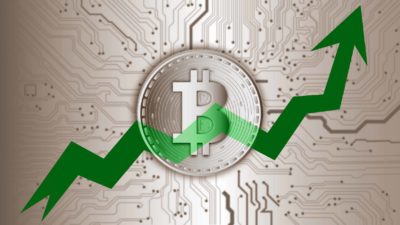Shiba Inu (CRYPTO: SHIB) is having a rotten day.
The dog-themed token, which was a rising crypto star in October, is down 21.0% over the past 24 hours, currently trading for .0047 US cents.
The original Shiba Inu-themed crypto, Dogecoin (CRYPTO: DOGE), is also in the red over the last 24 hours, but down a more moderate 2.5%, according to data from CoinMarketCap.
Shiba Inu, created in August 2020 and verified on the Ethereum blockchain, calls itself "the Dogecoin killer" on its website. And last month it looked to be living up to that claim.
Shiba Inu gained 552% in October. Dogecoin, meanwhile, gained 40%. Not quite "killed", but certainly outperformed.
What's driving the Shiba Inu selloff?
The big Shiba Inu price crash looks to be spurred by fears that a crypto "whale" could be positioning themselves to sell some or all of their billions of dollars worth of holdings of the token.
Crypto investors could be spooked after news emerged that the whale is shifting the tokens into different wallets.
According to Tom Robinson, co-founder of blockchain analytics firm Elliptic (quoted by Bloomberg):
It looks like there were four transactions out of that account yesterday [Tuesday], each sending $695 million of SHIB to a different account – so a total of $2.78 billion. Whoever it is purchased the SHIB on Uniswap about a year ago, for not very much.
So why is it so hard to track who owns and is moving some US$2.8 billion (AU$3.7 billion) worth of Shiba Inu tokens around in a day?
Crypto investor Aaron Brown, writing for Bloomberg Opinion, explained:
Legitimate crypto is fully transparent about transactions, code and other matters — but is usually opaque about matching transactions to individuals. This is the opposite of the banking system, which is opaque about everything except personal identification.
Wild speculation among retail investors is also likely stoking the rapid losses for the self-proclaimed Dogecoin killer.
Global multi-asset investment platform eToro's market analyst Josh Gilbert told the Motley Fool, "As these crypto assets have limited use cases, we often see investors not wanting to hold them for the long term, but instead move capital into more significant investments with robust use cases such as Bitcoin (CRYPTO: BTC) or Ethereum (CRYTPO: ETH)."
Gilbert added: "Although Shiba Inu and Dogecoin have grown in popularity and still have some use cases, they lack the long-term benefits that other crypto assets offer."
Why have these 'dog coins' soared in value recently?
"Both these crypto assets have two characteristics in common, and that's their communities," Gilbert told the Motley Fool.
"They have loyal, vocal, and committed community members that help attract new investors and new platforms to list these tokens."
Then there's the power of social media, a driving force behind the crypto retail army.
According to Gilbert:
Although both Dogecoin and Shiba Inu have some use cases and utility, the main reason for their growth comes down to the number of consumers trading these crypto assets. It's the power of the people, and we are seeing this drive the performance of these crypto assets. For example, Shiba Inu has over 1.7 million followers on Twitter and Dogecoin has around 2.4 million.
"On top of this," Gilbert said, "you also have influencers with large followings that attract even more trading volume. The biggest of them all would be billionaire Elon Musk, with his Shiba Inu puppy and his vocal support of Dogecoin."
Bloomberg Intelligence analyst Mike McGlone said: "Shiba Inu presents a unique blend of exploitation, good marketing, ESG, supply versus demand economics and gambling on an unprecedented 24/7 global scale, and faces reversion worthy of its parabolic rise."
Gilbert agreed that once some juicy gains are on the table, the selling frenzy may start:
Retail investors are driving the gains, and when we see prices gain 50%, 100%, and 150% in a few days, it attracts other retail investors to these crypto assets. Once the price drives higher, investors will begin to take profits, mainly when it reaches new highs. This, in turn, causes volatility.
We'll wrap up with this cautionary note on 'meme coins' from Aaron Brown:
Legitimate crypto has a solid underlying economic case, its value does not depend heavily on who holds how much of it. But for crypto with no underlying economics – whose value is determined only by speculation – concentrated ownership suggests a rigged game.







